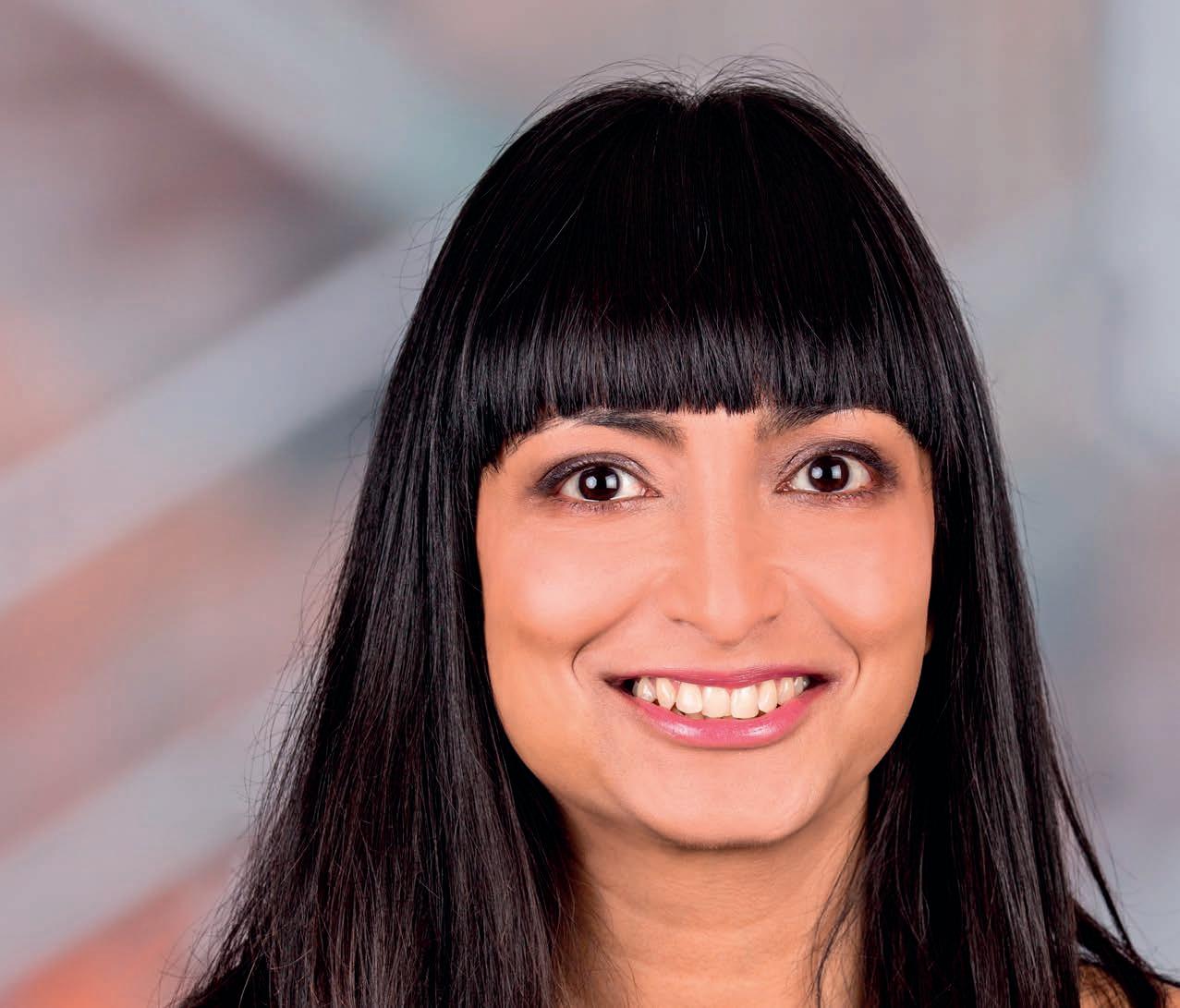
5 minute read
Righting the Way Forward
Noyona Chundur, Chief Executive at Consumer Council.
Joining with everyone working remotely is challenging but it’s also been exhilarating, eye-opening and rewarding in equal measure,” Noyona says of her initial settling in period.
Advertisement
Her new role at the helm of the Consumer Council isn’t her first encounter with the organisation, however the former Head of Campaigns and Digital Solutions at Invest NI has been involved with the Council since 2016 when she joined the Board, before becoming Audit and Risk Assurance Committee Chair in 2018.
“The familiarisation helped. It gave me a real insight into our agenda, work, people and stakeholders,” she continues.
While these are unusual times for the Consumer Council, with the team of 50 all working remotely, demand for services has increased in sync with the COVID-19 pandemic and in the wake of Brexit, their combined impact touching everyone’s lives.
Noyona says in the last 12 months they have helped 9,000 consumers, 3,000 with free dispute resolution. “For the others, we provided independent advice and signposting on a range of issues, including their rights and protections,” she adds.
The Consumer Council is the representative body of NI, responsible for ensuring that legislation and regulation for consumer protection works effectively here.
In addition to advisory services, it engages with government, regulators and stakeholders to influence public policy, deliver fair and affordable market access, investigate consumer complaints, and is a designated super-complaints body.
Statutory functions cover energy, post, transport, water and sewerage, and food accessibility, with non-statutory duties to educate and empower consumers against
Noyona Chundur joined the Consumer Council as its new Chief Executive at the turn of this year. Here she talks about the impact of COVID-19 and Brexit on consumers and businesses and the organisation’s new Corporate Plan.
unfair or discriminatory practices in any market, including financial services.
“A key area of work during COVID-19 has been around travel, in particular refunds and holiday cancellations, with many people still struggling to get money back,” Noyona continues.
“We’re working with the airlines and the Civil Aviation Authority to ensure consumers get the compensation they are due. Things are getting better but at the start of the pandemic it was poor.”
To date, the Consumer Council has returned over £820,000 from airlines and a further £40,000 from tour operators to consumers.
“That’s a real win for the team who in the midst of all this, achieved an advocacy score of 97/100 and a customer satisfaction score of 99.4%.”
Online scams and digital fraud has been another challenge for consumers during the pandemic. In the last six months of 2020, there were 1,700 scams reported to the PSNI, at a cost of just over £4m.
“The shift to digitalisation has meant everybody and everything moved online. We are working with the PSNI, Advice NI and the ScamwiseNI Partnership to help consumers become more vigilant.
“We need to educate the entire population so they understand their rights and redress. We have all been propelled into the online space, whether we like it or not, and scams are definitely on the rise.
“COVID-19 changes how we spend, work, socialise and live. Before the pandemic, Northern Ireland already had the lowest disposable income of any UK region with our lowest 25% of earners making ends with always starting on a deficit. So there is a more stark and pronounced impact on many households here.

Consumer Parliament 2020.
“The risk of unemployment, despite talk of economic recovery and the extension of forbearance measures, remains. All this does is amplify consumer detriment and diminish financial inclusion,” she continues.
The Consumer Council has been supporting consumers on Brexit matters, too, dealing with firms who have temporarily suspended deliveries to NI due to increased bureaucracy, while its work with small and micro businesses to recoup mail diversion costs has seen it save around 50 firms £1,000 each.
It has also returned £250,000 to businesses since 2017 through its Water Bill Health Checks, and helped small businesses and consumers save money through its energy price comparison tools.
Elsewhere in the utility field it is campaigning to implement remote payments for gas prepayment meters, encouraging consumers to submit timely meter readings to NIE and promoting NI Water’s Customer Care Register for vulnerable consumers.
Noyona has written the organisation’s new Corporate Plan for 2021-2024. It’s a shorter time frame than usual, she says, to reflect “the fluidity of our external circumstances”.
It has been compiled with input from the government, the utilities and advice sector, and providers in post, transport and financial services, with a conclusion to “champion and protect consumers”.
Its priorities address four issues; COVID-19, EU Exit, decarbonisation and digitalisation with a mission “to be the trusted go-to organisation for consumers in Northern Ireland”.
It references eight guiding principles; access, choice, safety, information, fairness, representation, redress and education to help it build consumer confidence and resilience, which empower consumers to make informed choices and influence any public policy affecting NI consumers.
“In parallel, we will seek to make markets work in the interests of consumers by ensuring government, regulators and industry reflect their needs and protections in policy, regulation and legislation, and when developing products and services.
“We work closely with the advice sector,” Noyona continues. “So that we are reaching out to everyone. I wrote this plan to support and empower all consumers, regardless of their circumstances, and that is my focus.
“Throughout the pandemic, we proved we can deliver everything we need to do on behalf of consumers without compromising service standards. We had to move most of our engagement and outreach online so I am looking forward to meeting consumers and our stakeholders around a table again as soon as it is possible to do so,” she concludes.










